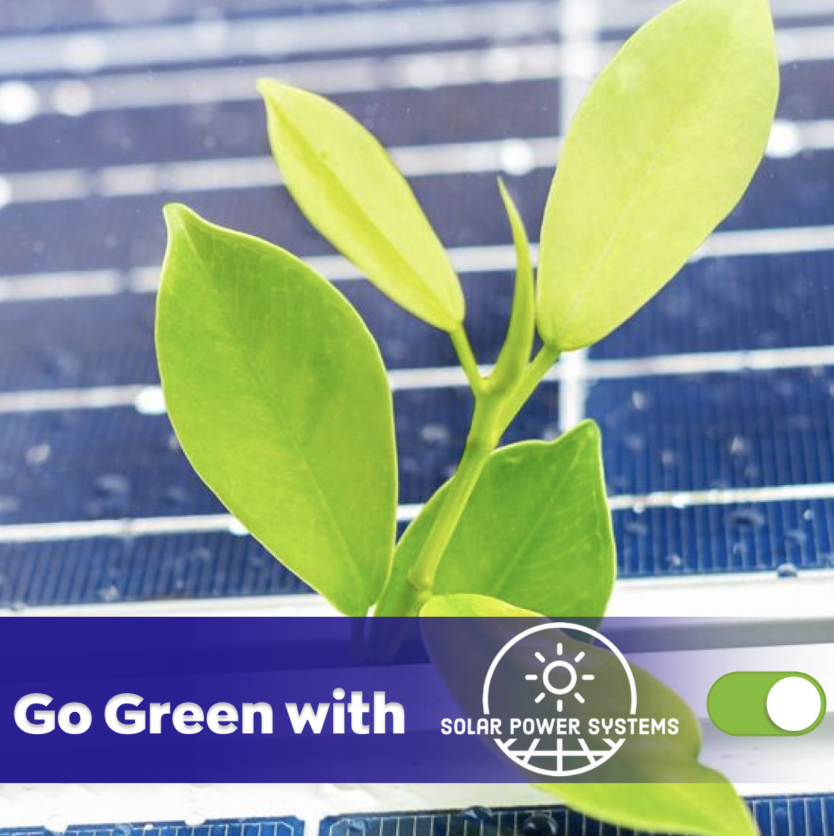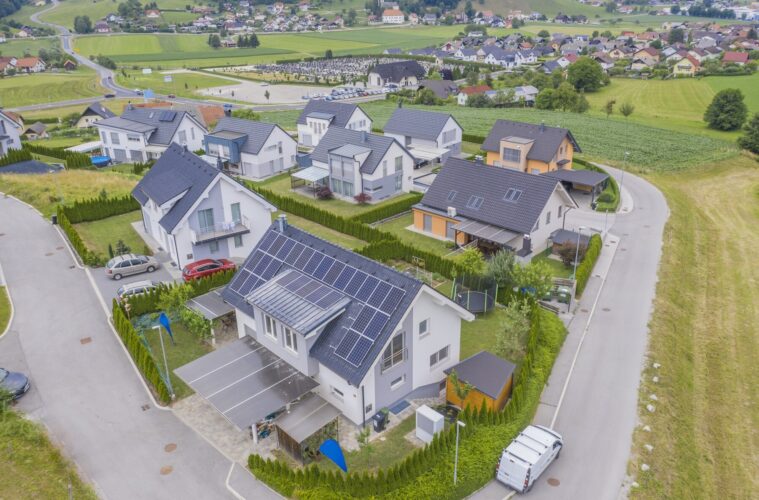In a time where the sustainability of our environment is one of the important parts of global concerns, the integration of green technology into our everyday lives has become vital. Solar power systems and smart homes may be regarded as one of the most promising unions of technology and sustainability. With the world confronted with the challenge of climate change, these innovations offer a light of hope which is the beginning of solving the dilemma of energy consumption and environmental impact.
The use of solar power is not a new practice. Since the nineteenth century, scientists delved into the idea of converting sunlight energy to power. Nevertheless, it was during the latter half of the 20th century that solar technology became a real contender to conventional energy sources. From its beginnings, the solar panel technology has improved a lot. From the first solar panels that were cumbersome and inefficient to the currently available compact, high-performance units that efficiently turn sunlight into electricity. The efficiency of thin-film, monocrystalline, and polycrystalline solar panels has been enhanced through innovation. This has made them practical and affordable for domestic use.
The Smart Homes Revolution
In the present world where the conservation of natural resources and protection of the environment constitute the focal issues, the concept of green smart homes is gaining popularity. The environmental performance of these advanced technologies becomes a crucial consideration in designing and constructing a home.
A green home is a sustainable way of using resources, which means that the negative impact on nature will be reduced. The technologies of modern smart houses are carried out to conserve energy, use renewable energy, manage waste as well as many other environmental solutions.

Source: Solar Power Systems
A modern smart home is composed of a broad range of devices that can be monitored and controlled by a smart device. This can involve self-controlled lighting and heating, security systems, energy management, and much more.
The green home concept plus smart technology enables optimizing energy efficiency. As an example, a smart lighting control system will automatically turn off lights in unoccupied rooms thus saving energy and reducing environmental impact. Green Home Design Innovative Technologies provide opportunities for sustainable and convenient living while preserving the environment.
Innovations in Solar Panel Technology
Solar panels, commonly referred to as photovoltaic (PV) panels, convert sunlight’s energy into electricity by utilizing the photovoltaic effect. The clean and renewable nature of this energy has contributed to its increasing usage as a sustainable alternative to conventional fossil fuels.
Solar cell technology has had a great development in the field of photovoltaic cell efficiency. Conventional silicon-based solar cells have been the mainstay of the market; nevertheless, a scientist has unremittingly been working to improve their performance. New materials such as perovskite, organic photovoltaic cells, and multi-junction cells have been shown to have the ability to improve efficiency significantly by capturing more sunlight and turning it into electricity with great efficiency.
Thin-film solar technology is gaining more popularity as it is lighter and more flexible than traditional bulky and rigid solar panels. Thin-film solar cells, made with materials like amorphous silicon or cadmium telluride, allow for the expansion of applications due to their flexibility. Such panels can be embedded in different types of surfaces including BIPV systems. This green technology opens up new opportunities to realize the harvest of smart solar energy in uncommon places.
The variable nature of sunlight poses a difficulty in solar energy usage. On the other hand, developments in energy storage technologies have been enhancing the efficiency of solar panels with the use of high-capacity lithium-ion batteries and flow batteries that can store excess energy that is produced during peak sunlight hours. This power can be stored and used when the sun is weak or at night making solar power a more dependable and consistent source of electricity.
Solar Panels and Smart Homes: A Synergic Approach
Meaningful integration of solar panels with smart home systems contributes to optimal energy efficiency. Smart houses can track energy consumption patterns, and make necessary automatic adjustments, thus solar energy is used effectively. It not only ensures grid independence but also results in much lower power costs in the long run for homeowners.
Energy Storage Solutions
While solar panels produce electricity during the daytime, households with smart technology still grapple with periods of increased power consumption at night. New solar technology for home, such as advanced batteries, is the lynchpin in overcoming this barrier. Smart homes can intelligently manage the stored solar energy so that there would not be any gap in the power supply even on cloudy days and nights.
Impact of Environment and Sustainable Living
The solar panels together with home automation technology reduce carbon footprints substantially in a significant way. Through reliance on clean and renewable energies, homeowners can achieve lower dependency on fossil fuels and hence decrease the environmental impact of conventional energy production.
Besides energy issues, smart homes also support green living. Automated systems may be used to optimize water usage, manage waste disposal, and regulate the indoor environment providing an entire system of environmental conservation in the house.
The immediate costs of solar panels and smart houses are the main challenges that some homeowners cannot overcome. Governments and industries have to work jointly to stimulate and subsidize such technologies to make them more affordable for the wider population.
Further research and advancement are vital to surmounting current issues and extending the scope of innovation. Integrating emerging technologies such as 5G connectivity, advanced sensors, and efficient energy storage will intensify the ability and performance of solar panels and smart homes.
To summarize, when the world is moving in the direction of sustainability, solar smart homes are becoming a bright sign of hope. This teamwork enables you to be less dependent on traditional sources of energy and, in addition, develops a more sustainable and resource-efficient lifestyle. Governments, enterprises, and individuals ought to collaborate to confront problems and embrace these technologies as a route to a green and intelligent future. By choosing green building technology today, we can together shape a better and more sustainable tomorrow.
Published by HOLR Magazine.


